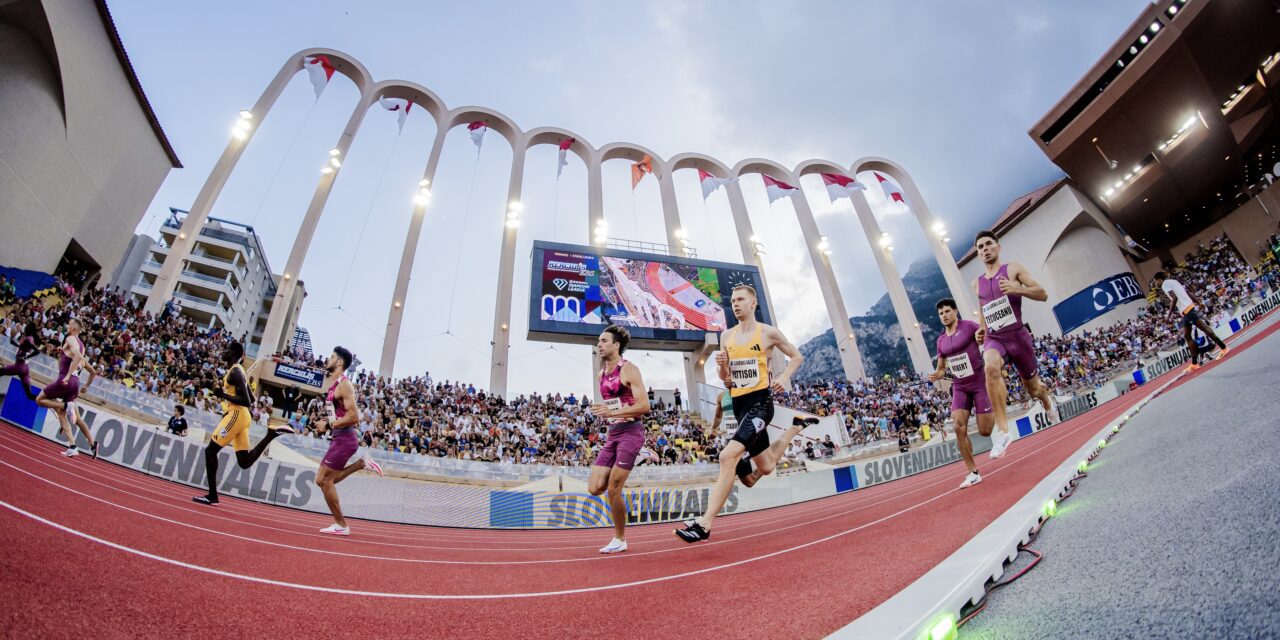The Herculis EBS athletics meeting has surged ahead in the sustainability stakes, earning the Silver Label from World Athletics under the Athletics for a Better World (ABW) Standard. This distinction marks a significant milestone in the event’s journey towards becoming one of the world’s most eco-conscious athletics meets.
The ABW Standard, based on six pillars — leadership, sustainable production, climate and carbon, local environment and air quality, equality and diversity, and accessibility and well-being — is designed to recognise events that go beyond the basics of greenwashing and deliver measurable change. Herculis EBS, backed by the Fédération Monégasque d’Athlétisme (FMA) and supported by the Prince’s Government, has been working methodically to align with those pillars since joining the initiative in 2023.
With guidance from Monegasque consultancy ARIMA, the event submitted its progress report to World Athletics in early 2025. The result? 87 out of 120 criteria ticked off, and a Silver Label awarded. According to FMA Vice President Rodolphe Berlin, it’s a proud moment — but not a reason to rest. “This isn’t the end, it’s the launchpad. It’s proof we’re heading in the right direction, and that there’s more work to do.”
That work has already begun. Herculis EBS has embraced a full-spectrum environmental strategy, including a comprehensive carbon audit carried out in collaboration with Gienov. The event now calculates its carbon footprint across direct emissions (Scope 1), indirect emissions from energy use (Scope 2), and all other related activities — from international travel to food services (Scope 3). This allows organisers to build a detailed roadmap for decarbonisation, track progress annually, and make informed decisions with real impact.
On the ground, change is tangible. Single-use plastics have been significantly reduced with the installation of water fountains for both elite athletes and amateur participants. Electric shuttle buses, introduced in partnership with Zeekr, replaced taxis to ferry athletes and staff between the airport, hotels, and the stadium. Spectators were encouraged to travel greener too — thanks to special late-night SNCF trains and free local buses on the day of the event.
Herculis EBS has also doubled down on its support for the local economy. In 2024, over 73% of suppliers were based within 25 kilometres of the event site. These included everything from logistics firms and technical crews to hotel operators and medical support teams. Partnerships with eco-certified hotels near the Stade Louis-II also helped reduce emissions linked to accommodation and transport.
The event’s efforts have been bolstered by the Mission for the Energy Transition (MTE), Monaco’s key environmental body, which has played a critical role in supporting the implementation of Herculis EBS’s sustainability strategy and ensuring it meets international standards.
While the Silver Label is a meaningful acknowledgement, it’s not a permanent badge. The label must be renewed annually, encouraging continuous improvement and preventing complacency. For Berlin, that’s exactly the point: “We’re proud of how far we’ve come. But sustainability isn’t a tick-box exercise — it’s an ongoing commitment. And we’re just getting started.”
Image courtesy of Soňa Maléterová

